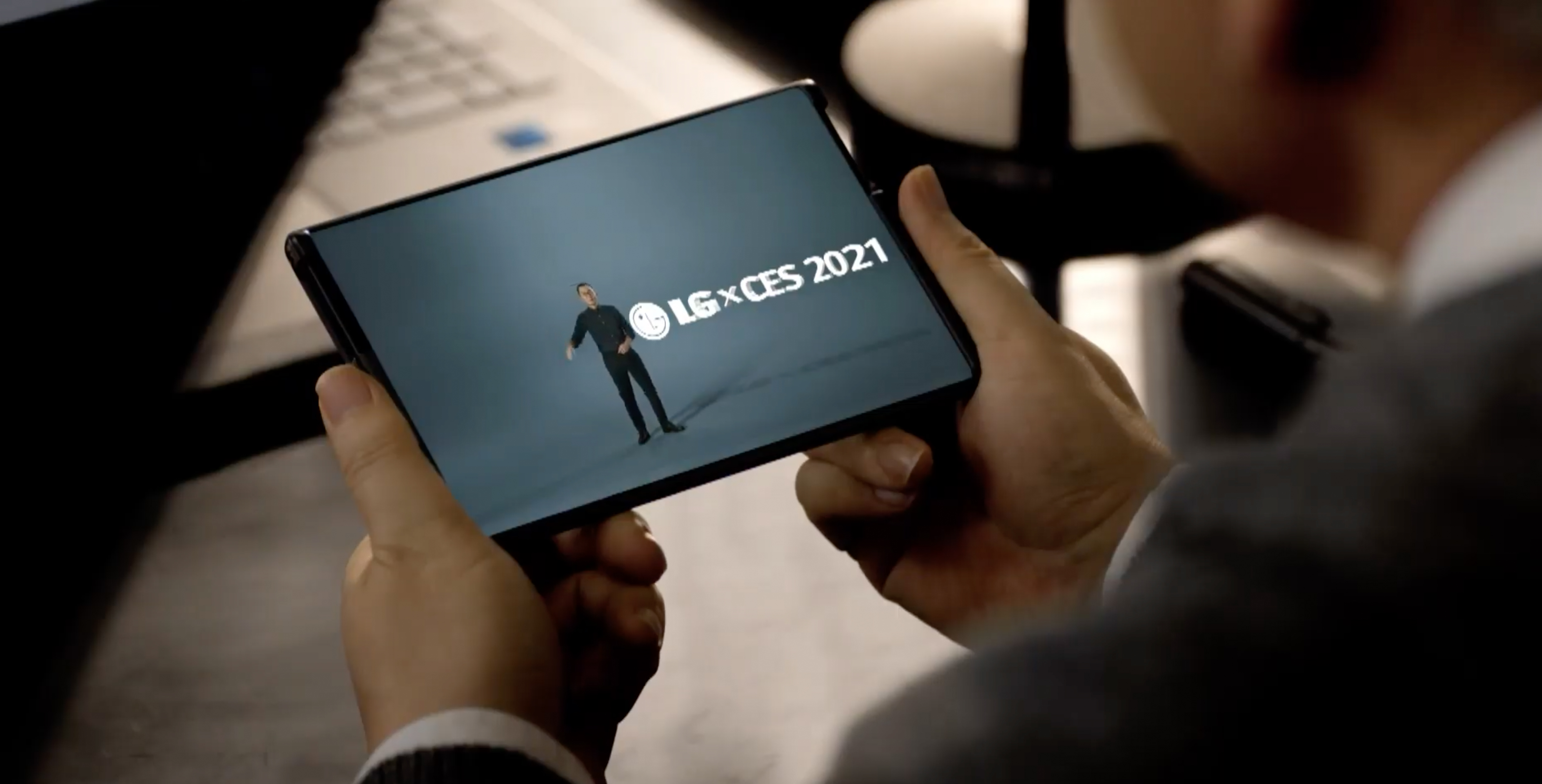
LG has always set itself apart in the smartphone game by introducing some bizarre and wacky ideas. From swivel devices like last year's LG Wing to modular phones like the LG G5, the Korean company has always liked to do things differently. Case in point: at CES 2021 last week, LG introduced a rollable phone that wowed us in its approach and possibility.
Unfortunately, LG's rollable phone might be its final hurrah in the smartphone space as the company is considering exiting the market entirely.
- Here are the best phones to buy
- Forget foldables — rollable phones look like the next big thing
- Plus: Samsung Galaxy S21 Ultra review
According to the Korea Herald, Samsung CEO Kwon Bong-seok sent out a message to employees Wednesday (Jan. 20), indicating major changes would be coming to its mobile division. Bong-seok was quick to establish that there would not be mass layoffs.
“Regardless of any change in the direction of the smartphone business operation, the employment will be maintained, so there is no need to worry,” Bong-seok said.
This suggests a major pairing down or complete elimination of the company's smartphone department. It comes after a difficult five years in the smartphone business as the company has lost $4.5 billion.
"I can confirm that LG Electronics is exploring a variety of options in light of the headwinds facing our mobile business," an LG representative said in an email exchange with Tom's Guide. "Any additional comments would be speculation. We will be in touch if and when there is news to share."
This comes a year after Bong-seok committed to making LG's mobile division profitable by 2021. But then coronavirus had gripped the world and upended the smartphone market. Even companies like Apple saw a dip in smartphone sales, which follows a general downward trend over the past five years.
Sign up to get the BEST of Tom's Guide direct to your inbox.
Get instant access to breaking news, the hottest reviews, great deals and helpful tips.
But LG's market forecast has been far more dire. The company had been posting operating losses for 23 consecutive quarters.
"The smartphone market dangles wild profits in front of manufacturers, but only a few companies claim the riches," said Avi Greengart, president and lead analyst at Techsponential, a market research and advisory company.
Not only was LG's phone division a customer of its own components and displays, it was also the driving force of the company's overall vision.
"Smartphones were supposed to be the hub for LG's AI and IoT ecosystem that connects LG televisions and LG home appliances," Greengart said. "Exiting smartphones entirely would mean conceding defeat not just to Apple, but to cross-town rival Samsung, while abandoning major strategic ambitions across the company."
Why LG phones may not be resonating with consumers can be explained by multiple reasons. Strong competition from both Apple and Samsung on the enthusiast end has left LG's offerings feeling short.

For years, LG's premium V series, like last year's V60 ThinQ, had trouble competing with Samsung in both design and camera performance. LG dropped the V series for its Velvet, a more affordable option with higher end specs. But that too was outclassed by phones like the OnePlus 8.
If LG couldn't compete with performance and design, its only differentiating factor was novelty. And while swiveling phones like the LG Wing are cool, it attracts a niche crowd, one that's willing to overlook certain specification shortcomings for something offbeat.
At the moment, LG commands less than 2% of smartphone market share. It's unfortunate, as LG's does bring forward inspired products. If LG could do a better job in bringing products that compete and excite on the enthusiast end while also finding ways to remain competitive at the mid-range against companies like OnePlus, then the company might find its audience. But if it does exit the space, the market will have lost one of its major innovators.
Imad is currently Senior Google and Internet Culture reporter for CNET, but until recently was News Editor at Tom's Guide. Hailing from Texas, Imad started his journalism career in 2013 and has amassed bylines with the New York Times, the Washington Post, ESPN, Wired and Men's Health Magazine, among others. Outside of work, you can find him sitting blankly in front of a Word document trying desperately to write the first pages of a new book.

